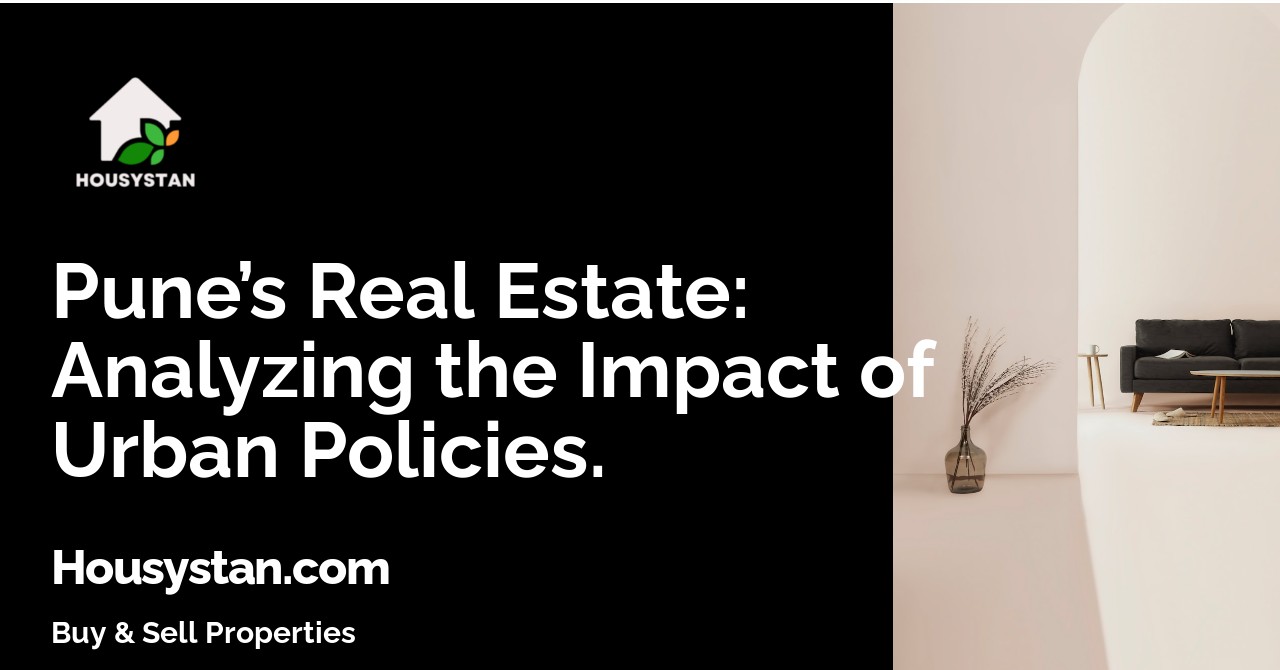Pune’s Real Estate: Analyzing the Impact of Urban Policies
Read latest blogs and articles from Housystan

The Information mentioned here was last updated on:
9/1/2026Pune’s real estate market stands as one of India’s most dynamic and rapidly evolving sectors, shaped significantly by innovative urban policies and strategic planning by local authorities. As Maharashtra’s cultural and educational capital, Pune continues to attract a diverse population, fueling demand for residential, commercial, and mixed-use developments across the city. The consistent growth in infrastructure, coupled with progressive government initiatives, has propelled Pune to the forefront of real estate investment opportunities in Western India.
Urban policies in Pune have played a pivotal role in transforming the city’s skyline. The introduction of smart city projects, expansion of metro rail networks, and enhancement of road connectivity have seamlessly integrated emerging neighborhoods with established localities. These proactive measures have not only improved quality of life but have also significantly boosted property values in regions such as Kharadi, Hinjewadi, Baner, Wakad, and Magarpatta. Investors and homebuyers now view Pune as a preferred destination for long-term growth and stability.
Further, the implementation of RERA (Real Estate Regulatory Authority) has enhanced transparency and accountability in property transactions, fostering greater trust among buyers and developers. This regulatory reform has streamlined processes, encouraged timely project completion, and ensured adherence to promised specifications—critical factors that contribute to Pune’s positive real estate reputation both within Maharashtra and across India.
- Verified Tenants/Buyers
- Unlimited Property Listing
- Zero subscription/charges fee
The city’s robust educational ecosystem, with numerous universities and research institutions, continues to attract students, professionals, and global talent. This influx has driven a surge in demand for rental accommodations and affordable housing, making Pune a hotspot for real estate developers targeting varied demographics. Coupled with IT parks, industrial zones, and thriving commercial hubs, the city’s urban policies have carefully balanced modernization with sustainability, supporting green spaces and community development initiatives.
In conclusion, Pune’s real estate market thrives due to forward-thinking urban policies, infrastructural advancements, and regulatory reforms that encourage sustainable growth. As the city continues to expand, these strategic measures will ensure Pune remains a leading destination for real estate investment, attracting homebuyers, businesses, and investors seeking secure opportunities in a vibrant metropolitan landscape.